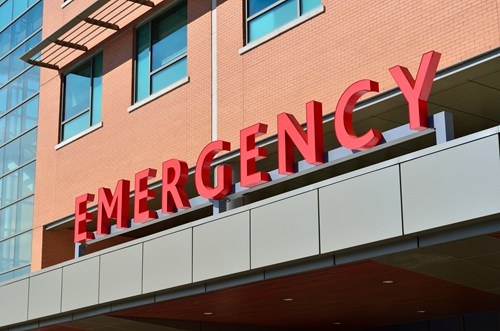A San Francisco-based hospital’s emergency department social medicine (EDSM) team has improved care delivery to patients with psychosocial needs. Here’s what the team has accomplished so far since it formed in October 2017.

Patients with complex medical and social needs face additional barriers to conventional outpatient care, such as transportation, access to health care, homelessness, and other social determinants of health. To address their concerns and better support ED clinicians, Zuckerberg San Francisco General Hospital and Trauma Center decided to integrate medical and social care in 2017 and establish an EDSM team.
“We all want to feel that we are treating the patient so that they will do as well as possible in their life outside the hospital — to address not just the immediate medical issue, but the things that are fundamental challenges in their lives,” wrote authors Jack Chase, M.D., Jenna Bilinski, RN, MBA, and Hemal K. Kanzaria, M.D., in a recent article for Academic Life in Emergency Medicine (ALEM). The authors also described the program in a December article published by the Journal of the American Medical Association (JAMA).
The team is made of a patient navigator, social workers, care coordination nurses, a pharmacist, physician consultants, and specialists in transitional care, substance abuse, and quality improvement. Clinicians refer their patients, who are experiencing homelessness, substance abuse, mental illness, food insecurity, domestic violence, or gaps in access to care, to the team.
The team then reviews the electronic health records for patients with psychosocial needs, proactively discusses complex patients with psychosocial needs with ED clinicians and nurses, integrates any psychosocial and medical aspects of care in consultation with the ED clinicians prior to patient discharge or admission, and provides medications free of charge prior to discharge to patients experiencing barriers to medication access.
The results so far are promising, the authors wrote in JAMA:
- From October 2017 through March 2020, the EDSM team performed 3,944 ED consultations to assess and coordinate care for patients, which prevented 567 admissions and 127 readmissions
- The EDSM team provided 1,163 patients with discharge medications at no charge, as well as bedside pharmacist education prior to discharge
- Patients treated by the EDSM team has a 5.8 percent decrease in their 60-day ED utilization following EDSM consultation
The authors note in ALEM that the EDSM team is only one way to integrate to medical and social care. They recommend a four-step call to action to embrace social care:
- Partner with ED social workers and community social services to understand the social needs of your patients
- Ask patients about their primary concerns and social needs and what you can do to help
- Form a team and develop partnerships with staff in your ED (such as social workers) and outside the health setting (community-based organizations) to fully understand a system problem, such as need for emergency housing
- Establish a team to understand a problem at the community-level and advocate for increased social services for your community

